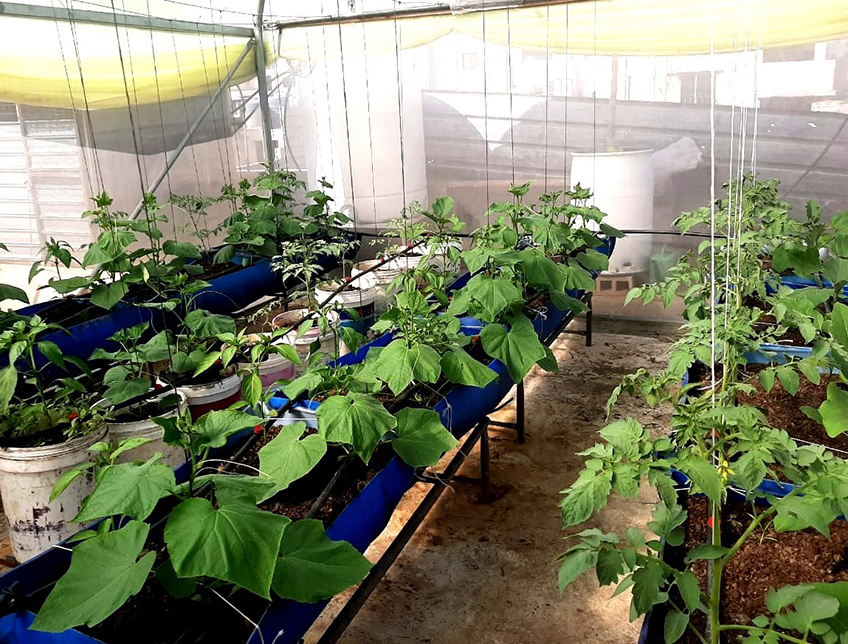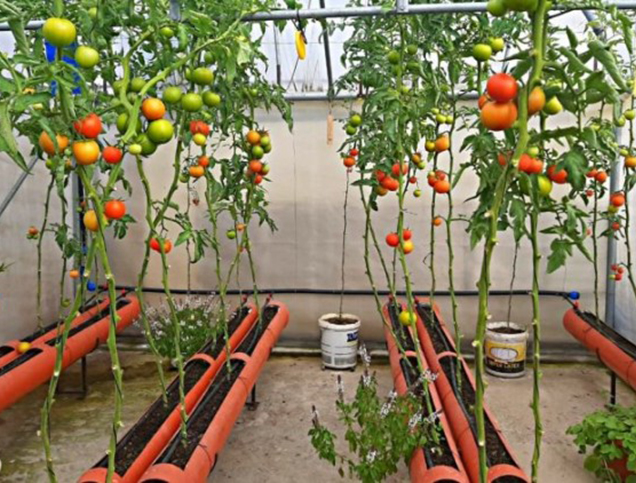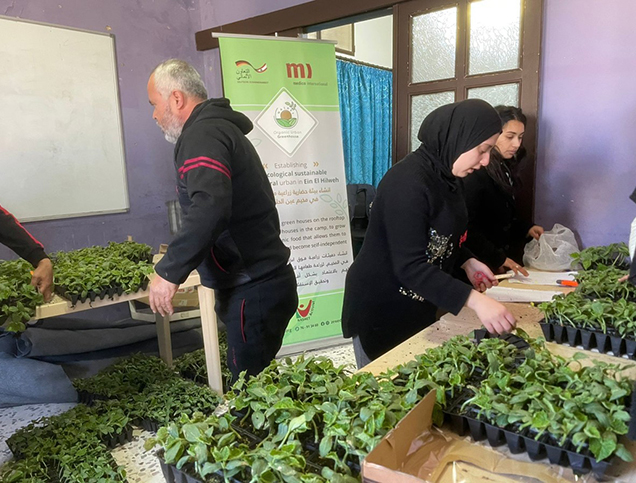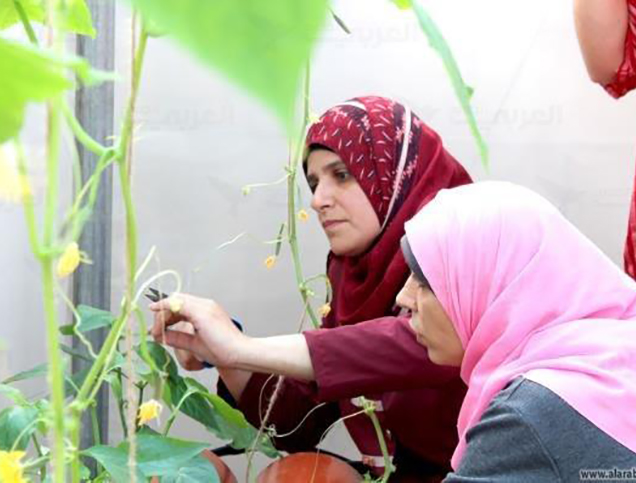
Close

Approach Words: Capacity Building, Urban Livability, Urban Resilience
Public Policy Instruments: Financial Mechanism, Physical Intervention, Planning
The Rooftop Farming program is an urban agriculture project led by Nashet Social Cultural Association in two Palestinian refugee camps in Lebanon: Ain El Hilweh in Saida City,1 and Rashidieh in Tyr City.2 This initiative addresses the lack of agricultural land in a densely populated settlement3 through organic4 farming activities on rooftops.5 The project features two types of farming activities: cultivation in plastic pipes inside greenhouses and cultivation in half-plastic barrels outside the greenhouses.6
The project has three primary objectives: to economically and socially empower Palestinian women7 8 by creating job opportunities and generating income,9 to reconnect Palestinian refugees with their agricultural heritage,10 and to improve the environment through urban agriculture while ensuring access to healthy food.11

Title: Farming in half barrels outside the greenhouses.
Source: Click Here

Title: Farming in plastic pipes inside the greenhouses.
Source: Click Here

Title: Training and seedings distribution phase.
Source: Click Here

Title: Training on seasonal plant care.
Source: Click Here
To achieve these objectives, Nashet Association implemented the project in two phases: planning and implementation, as follows:
(1) The planning phase includes the following steps:
(2) Following the planning phase, the project was implemented in two main phases as follows:

Owner/Developer


Contractor/Implementer
The crop selection is based on crop types that require low maintenance, are less susceptible to diseases, are reasonably priced, and offer higher yields than other crops. The chosen crops include beans, cucumbers, tomatoes, peppers, bell peppers,26 eggplants, and zucchini.27 It’s worth noting that the farming process follows the principles of organic agriculture, requiring beneficiaries to avoid using any chemical substances throughout the farming process.28
The Rooftop Farming Program was initiated and implemented by Nashet Social Cultural Association29 30 in 2018 following their 2016 Zawedetna Project (Palestinian Kitchen).ii The project is a collaboration with Al Karama Association.31 It is funded by Mi Medico and Lush,32 with additional support from the Embassy of the Kingdom of Norway in Lebanon in the second phase.
The association established a three-year contract for supervision and follow-up with the beneficiaries to ensure the program’s sustainability. This contract includes providing seedlings seasonally, marketing the crops surplus,33 and ensuring that the owners of these greenhouses benefit financially.34 Here, the Women Cooperative Societies (WCS)iii of the Zawedetna Project will purchase any surplus crops affiliated with the Nashat Association.
Project Link
Endnotes
References